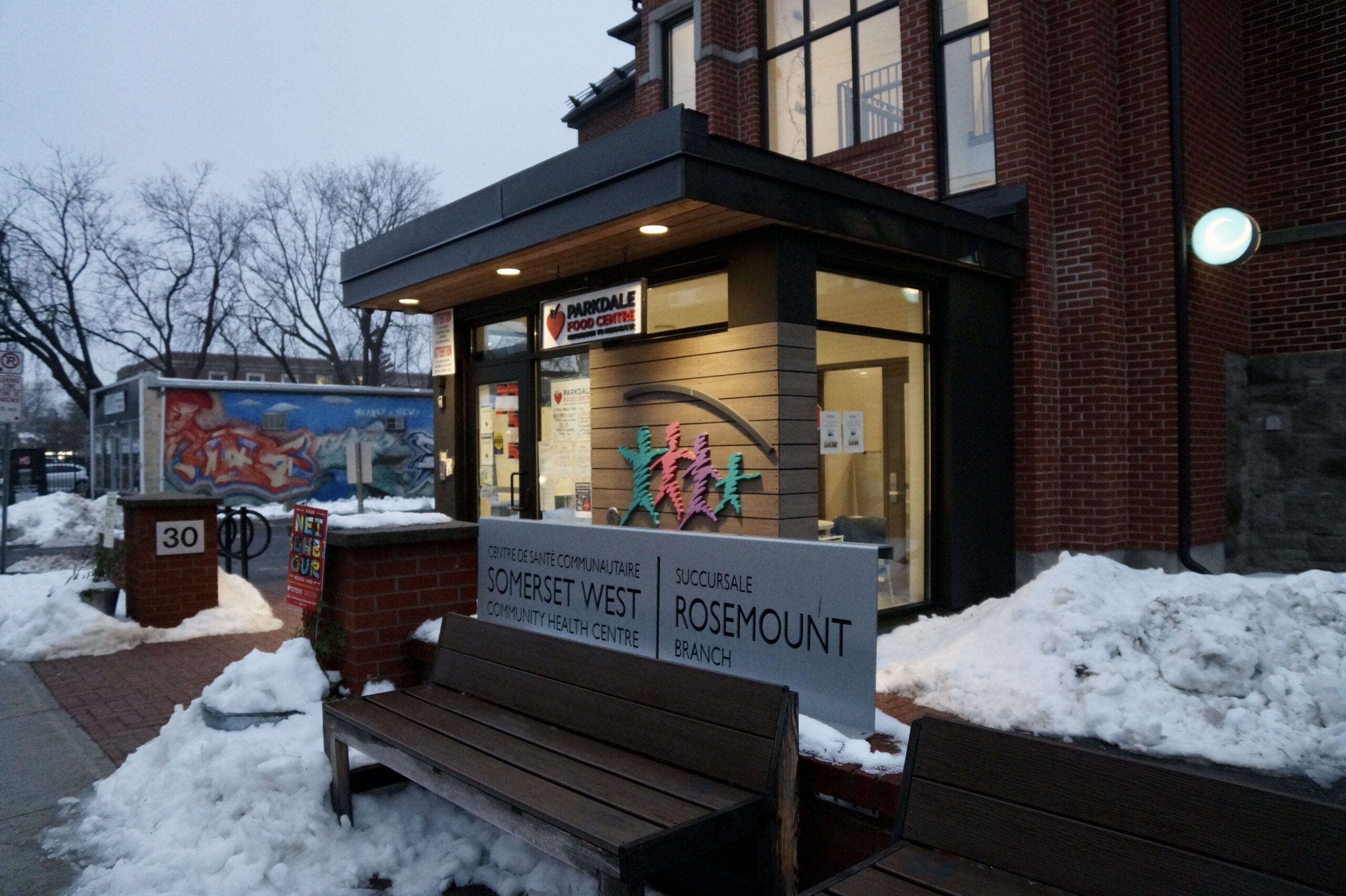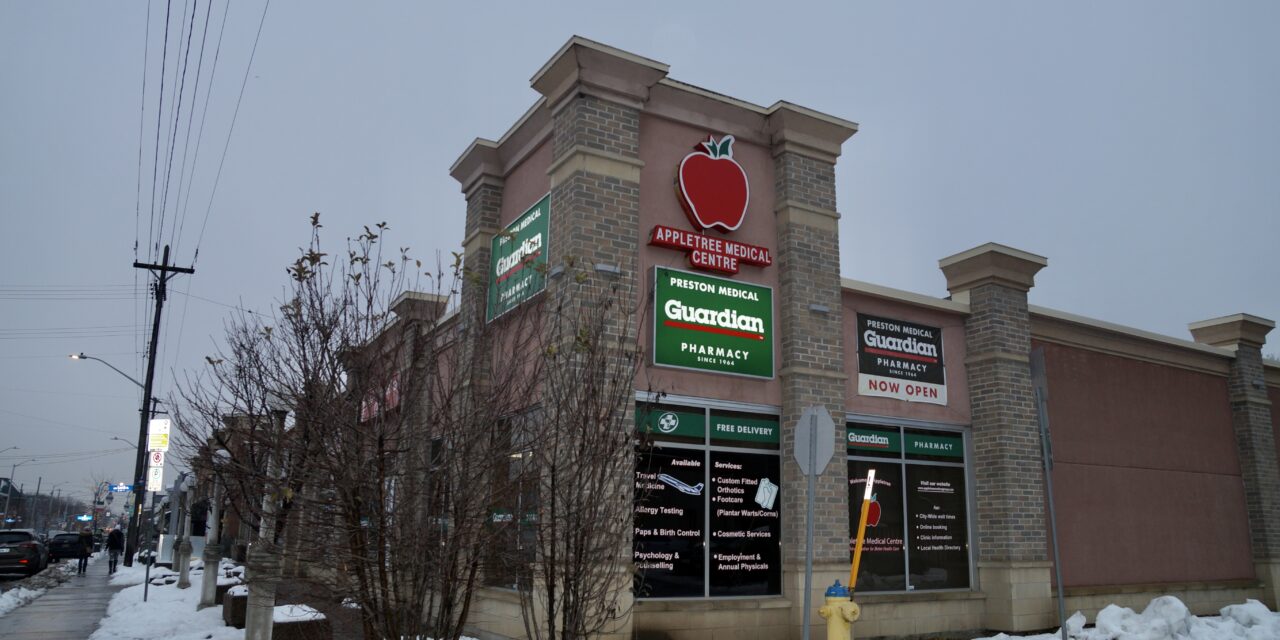Without a family physician, you either have to seek care at a walk-in clinic or the emergency department. (Photo by Rebecca dePencier)
OTTAWA — Sebastien Plante started looking for a doctor before he graduated from Carleton University.
“Four years later, they still hadn’t found me anything,” he said.
Plante has multiple chronic illnesses and needs blood work done regularly. Someone recommended that he register for Health Care Connect, a program meant to connect Ontario residents who don’t have a primary care physician with a family doctor or nurse practitioner who is accepting new patients.
Demand for that program has skyrocketed over the past four years. The number of patients on the waiting list for a referral in the Ottawa region has quadrupled since 2017, according to data obtained by the provincial ministry of health.
There were 6,000 people on the list four years ago. Now, there are nearly 26,000.
Plante, like many in the city, relies on his local walk-in clinic for care.
“I’ve been going there for my blood work and whatnot to make sure that I don’t die,” he said.
Demand for family doctor referrals through Health Care Connect has risen by 331 per cent since 2017.
A long search for a family doctor is not unusual in the capital region, said Dr. Andrew Stewart, who started his practice here three years ago.
“My schedule filled up very quickly with people looking for a doctor,” said Stewart. “A lot of people told me that they had been waiting upwards of two years to find a family physician.”
Stewart has concerns about patients who rely on care from walk-in clinics, particularly during the pandemic. He said his patients have had three years to get to know him and build trust. They’re more likely to reach out when they need him.
“It’s hard to emotionally open up to a walk-in doctor who you don’t know,” said Stewart. “I’m not saying it doesn’t happen. I’m sure walk-in physicians also deal with a lot of mental health issues. But it’s probably not as easy for people to share their stresses and seek out the treatments that they might need in a particularly stressful time.”
The problem is not just limited to Plante. Community Facebook groups and the Ottawa Reddit page are rife with people searching for a family doctor. There is even a realtor website that warns newcomers to the city that it can sometimes be a challenge to find doctors taking new patients in Ottawa.
Despite many people speaking openly about the difficulty, data from the Canadian Institute of Health Information does not reflect the problem. The Champlain Local Health Integration Network (LHIN), which represents Ottawa and the surrounding area, has had the second or third highest ratio of family doctors to population for 15 years.
Family Physician to 100,000 population ratio
One of the reasons the numbers may not reflect the struggle many are facing is because traditional methods of measuring the physician workforce may not be as effective as they once were.
“One has to go beyond just the pure numbers,” said Douglas Angus, a retired health policy and economics professor at the University of Ottawa’s Telfer School of Management. “When you take a look at the quantity of positions available, it looks pretty good. So the puzzle then becomes why are people having difficulty getting access to a family physician?”
A study published in the Canadian Medical Association Journal three years ago found that just over two-thirds of the family doctors registered in Ontario were providing comprehensive care in 2014 and 2015.
The others were either not working full time, or not offering the range of services the study identified as representing comprehensive care.
Angus said this issue is very much at play in Ottawa, and across the country. Family doctors want a better work-life balance.
“Physicians are just not going to work the kind of hours that they did previously,” he said. “They’re probably not going to be accepting as many patients as might have been the situation, as say, a decade ago.”

More and more people in Ottawa are using walk-in clinics like the one at the Rosemount Branch of the Somerset West Community Health Centre as a replacement for a family physician. (Photo by Rebecca dePencier)
A similar issue was recently raised in Parliament by MPP Ian Arthur regarding the city of Kingston. The province designated the municipality as a “non-high needs community” despite recent data collected by the city that suggests 23 per cent of its residents do not have a primary care practitioner.
23 per cent of Kingston’s residents do not have a primary care practitioner
“While Kingston hosts what might seem to be an adequate number of physicians for our population,” Arthur said in November. “A disproportionate number do not actually practise comprehensive medical care.”
Arthur said that in a study of 312 Kingston family physicians, 173 did not practise family medicine in the community. Those doctors were engaged in different varieties of practice, such as teaching, research, student health, or subspecialties of family medicine such as long-term care.
But there is hope. Plante recently made a list of all the family doctors within walking distance of his apartment.
“And as it happened, the very first place I called said that they were taking new patients,” he said. “They took my name and my health card number. And immediately, they were like ‘Okay, you’re a patient.’”
After four long years, Plante’s search for a doctor is over.






Really liked the impressive Family Physician race bar chart dynamically showing change over time like GIF. When I went to find out about the team I was surprised by a typo, “…All of the articles contained in this publication have been possible thanks to their reporting which has been done remotely from their homes strecthing from New Delhi to Ottawa to Vancouver.” Missing the small things like strecthing with autocorrect and spellcheck diminishes that good impression of the chart
Hi, thank you for bringing this to our attention! The typo has been fixed. Thank you for taking the time to visit our website and we’re glad you enjoyed the article!